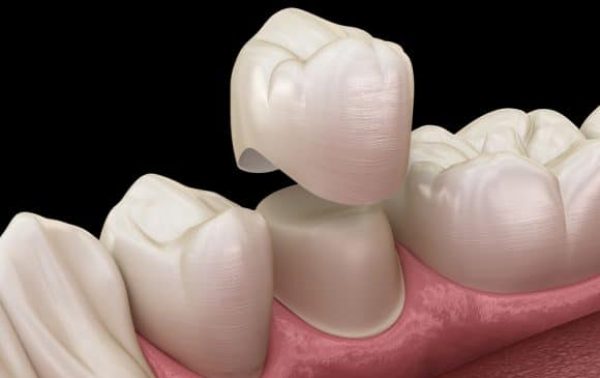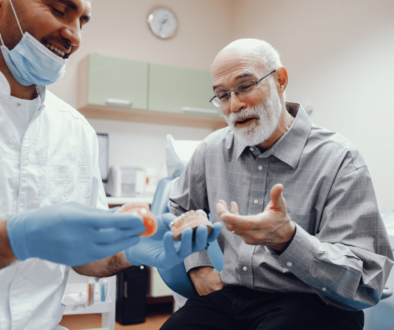Benefits of a Crown or Bridge

Have you been advised by your dentist that a crown or bridge would be a benefit to you?
A crown supports or replaces a structure that no longer works on its own and is the most effective solution to restore the shape, appearance and function of a tooth that is damaged but not lost. Your dentist may recommend a crown if you have had a root canal to protect a weak tooth, have a large restoration or broken tooth, to protect a severely worn down tooth and also to cover an implant.
Bridges are used to cover a space if you are missing one or more teeth. Spanning an area they are cemented to your natural teeth or implants serving as anchors.
Spaces left by missing teeth can cause the remaining teeth to shift and tip resulting in possible problems such as bone loss, tooth decay or sensitivity and a distorted bite.
Unlike dentures, crowns and bridges are fixed restorations that are cemented onto existing teeth or implants.
There are many types of crowns and several types of materials to fabricate the restoration, all of which impact the cost. To decide which material to use your dentist will consider many factors, such as:
✅ your preference
✅ the location and function of the tooth
✅ the position of the gum line
✅ the amount of tooth visible when you smile
✅ the colour or shade of the teeth
To prepare the tooth or teeth a reduction in size is done in order for the crown (or bridge) to fit properly. Next a mold and shade of the teeth are taken to blend with the existing teeth. The crown will then be made in the lab using the impression taken. In the meantime a temporary crown (or bridge) will cover the prepared tooth until the permanent restoration is fabricated. This typically takes up to two weeks. When the crown (or bridge) is completed, the temporary restoration will be removed and the permanent restoration will be cemented in place.
The crown or bridge is very strong and can last a lifetime but generally lasts for about 10 years or more. It is possible for them to come loose, fall out or fail so to ensure their longevity, it is important to have good oral hygiene practices to maintain the bone health and prevent disease. Also professional dental cleanings and checkups are key. It is important to avoid chewing hard foods, ice or other hard objects such as pencils to prevent damage.
If you are interested in finding out if this is an option for you, contact us at the dental office to make an appointment for a consultation and examination.



